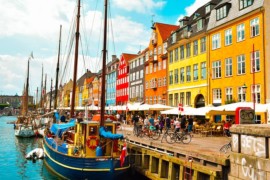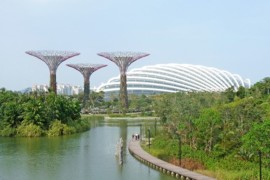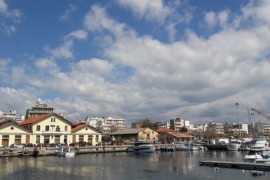
The European Commission has concluded an investigation into potential state aid for German combined heat and power and found that the support improves the integration of cogeneration into the electricity market and is in line with EU state aid rules.
Brussels said the policy was in line in particular with its 2014 Guidelines on State aid for environmental protection and energy.
Margrethe Vestager
According to New Europe website the commission believes the scheme will contribute to energy efficiency, lower CO2 emissions and lead to a better integration of cogenerated power into the electricity market. Potential distortions of competition brought about by the state support will be limited by allocating part of the support through competitive tenders.
At the same time, the Commission will start an in-depth investigation into reductions for certain users from the surcharges imposed to finance the support.
Commissioner Margrethe Vestager, in charge of competition policy, said: “Cogeneration plants not only produce electricity but also put to use the heat generated in the process. The German cogeneration support scheme we approved today can make an important contribution to EU energy and climate goals. It improves the integration of highly efficient electricity cogeneration into the market whilst keeping electricity prices low for customers. At the same time, we need to examine in more detail the impact on competition of reductions for certain users from the surcharge that finances the scheme.”
The German Heat and Power Cogeneration Act 2016 (Kraft-Wärme-Kopplungsgesetz – KWKG 2016) provides for state aid to operators of new and modernised highly efficient cogeneration (“CHP”) plants (except coal and lignite-fired CHP). It also supports the construction and expansion of energy-efficient district heating/cooling networks as well as the construction and retrofitting of heating/cooling storage facilities.
Operators of installations will have to offer their electricity on the market and will receive their support in the form of a fixed premium on top of the market price.
The measure gives an incentive to CHP plants to operate when they are needed, i.e. at times of higher electricity demand. This is because they will only receive the fixed premium for a limited number of operating hours (so-called full load operating hours). Therefore, the plants have an incentive to operate when the market price is higher. In line with the Guidelines, CHP plants will not receive any support when electricity prices are negative, i.e. when supply exceeds demand.
The cost effectiveness of the CHP support is further ensured through tenders to allocate support to new CHP plants with installed capacity between 1 and 50 MW. CHP plants with installed capacity of more than 50 MW will receive premiums as set out in the KWKG 2016. This is because the participation of the larger plants in tenders could render those uncompetitive.
It avoids that a limited number of large bidders, which would be able to cover the entire tender capacity, can resort to strategic bidding leading to higher prices and preventing smaller suppliers from competing.
The KWKG 2016 also provides for state aid for existing gas-fired high-efficient CHP plants used for district heating. Germany has demonstrated that due to a higher level of production costs and low electricity prices, without the limited support, these plants would stop operating. On this basis, the Commission has found that the support was proportionate and needed to prevent a significant increase of CO2 emissions in Germany and is in line with EU state aid rules, in particular Article 107(3)(c) of the Treaty on the Functioning of the European Union.
After an inquiry to see if everything was in line with European rules, the European Commission approves this week aid to Germany for cogeneration projects.
Brussels assures that the projects are in line with the 2014 regulations on State aid for environmental protection and energy.
According to the Commission, the German plan should lead to more energy efficiency, lower CO2 emissions and better integration of electricity produced by cogeneration in the market.
The competition problems induced by European aid will be limited by the allocation of part of the aid to tenders.
Margrethe Vestager, European Commissioner, noted that
“Cogeneration plants do not only produce electricity, they also use the heat produced in the process.
The German Co-Regeneration aid which we have just approved today can play a major role in the Union’s energy and climate objectives.
This improves the integration of energy produced by efficient cogeneration systems within the market, while maintaining low prices for customers. ”
The German plan in question (Kraft-Wärme-Kopplungsgesetz – KWKG 2016) envisages allocating state aid to modern, modernized and efficient cogeneration plant operators.
It also plans to sponsor the construction or expansion of efficient heat and cooling networks, as well as their rehabilitation or modernization.







